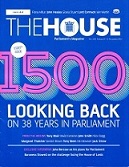CRIMINAL JUSTICE (SCOTLAND) ACT 2016 (CONSEQUENTIAL PROVISIONS) ORDER 2017
|
10 January 2018: Motion to Approve
Lord Duncan of Springbank moved that the draft Order laid before the House on 13 September 2017 be approved. during the course of the debate.... Lord Faulkner of Worcester My Lords, in opening the debate, the Minister referred to the degree of opposition to this proposal in this House. He was not wrong in that. He could also have mentioned the degree of opposition in the Scottish Parliament, most particularly among his colleagues in the Conservative Party, who are on record as opposing this proposal most vigorously, particularly Ruth Davidson. He could have included the Liberal Democrats and the Labour opposition in the Scottish Parliament as well. But above all, he should have mentioned the opposition of the British Transport Police and the British Transport Police Authority. When it gave evidence to the Scottish Parliament in March, it said that dealing with fatalities, for example, could take 50% longer under the new plans, and that, “there is well-defined evidence that a non-specialist force is less able to provide the consistent levels of service that a dedicated policing commitment can offer”. Decades of experience of dealing with IRA threats would be lost, and the work that the BTP undertakes as the lead authority on scrap metal theft across the whole of Great Britain would also be lost if this proposal went through. Fortunately, there is an opportunity for the Scottish Parliament to think again about the model of devolution which it is putting forward. Indeed, it would have been helpful if this House had passed the amendment which a number of us tabled almost exactly two years ago, which made it clear that, while we were not opposed to devolution of transport policing in Scotland, that devolution should be on the basis that a force linked to the British Transport Police should be the agency that carries it out. I spoke to the chief constable of the British Transport Police, and he is entirely happy with that. Indeed, in its evidence to the Scottish Parliament the BTP said that it is happy to have a direct relationship with Scottish Ministers and with Holyrood. If it is necessary to change the name of the force in Scotland, for the reasons that the noble Lord, Lord Forsyth, referred to, that is possible—there is no reason why it should not be called “Transport Police Scotland” or “Scotland Transport Police”. Nobody is hung up on the name of the British Transport Police. What matters is that the job is done properly and in the most effective way. Lord Forsyth of Drumlean The noble Lord says that nobody is hung up on the name of the British Transport Police, but the Scottish National Party is. Lord Faulkner of Worcester The noble Lord is of course absolutely right. I will finish by picking up one of the points that the noble Lord made and adding to it. He referred to the no-detriment principle in the Smith commission report. Principle 5 of that report says that the package of powers agreed through the Smith commission process should, “not cause detriment to the UK as a whole nor to any of its constituent parts”. It is evident that there is a financial implication. There is also an implication for travellers travelling between England and Scotland, who will suffer a detriment, as a number of speakers in this debate have indicated. Therefore, when the Minister goes back to talk to the Scottish Government, he must take seriously the need for that no-detriment principle to be applied and impress on them that it certainly applies in this case. |


































